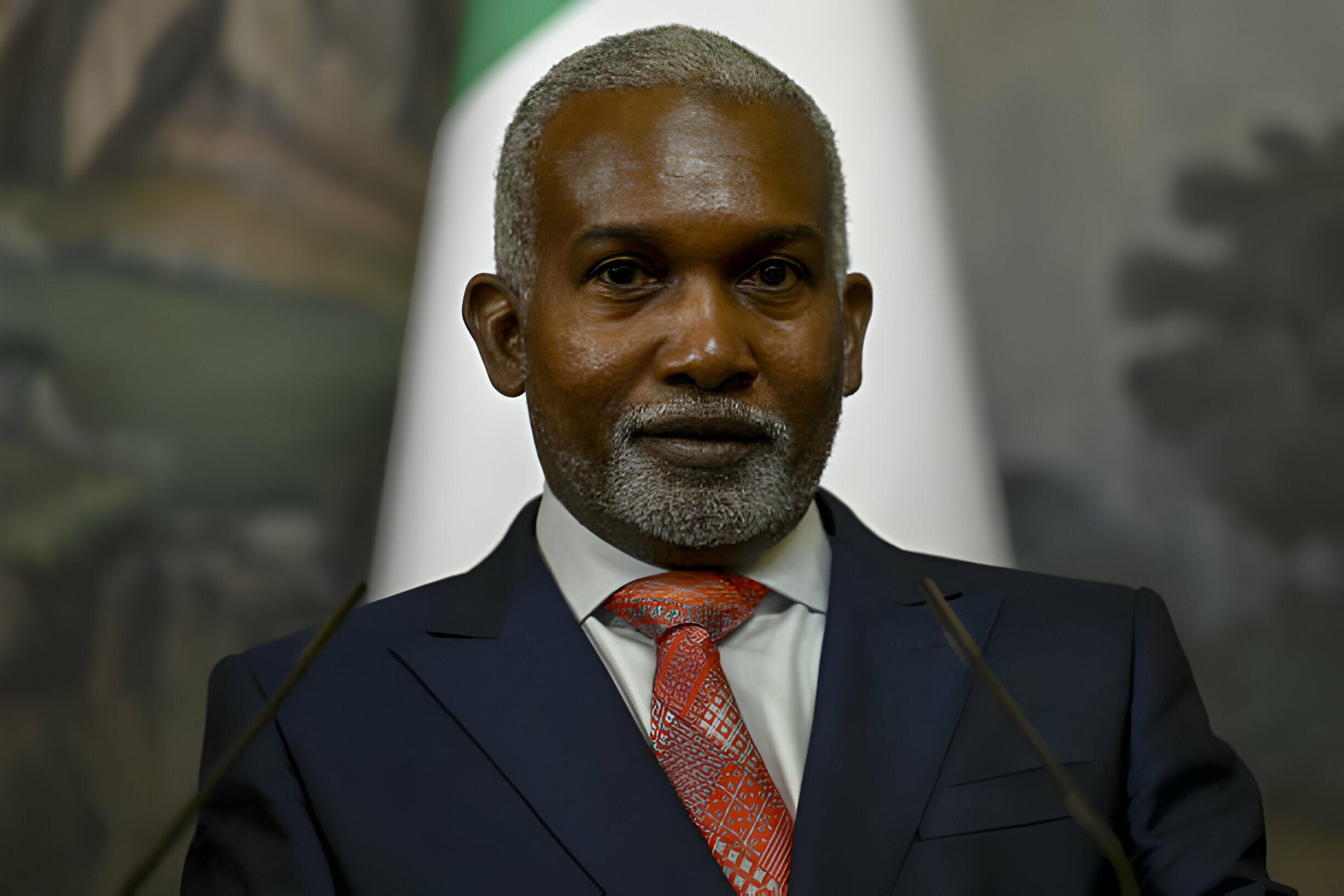
Nigeria recently joined BRICS countries as a partner, a move that could redefine regional trade, development, and geopolitical strategies. NGOZI EGENUKA reports that though the decision seems lofty, it seems like a violation of the country’s non-aligned policy.
A few days before Donald Trump was inaugurated as the 47th president of the United States, Nigeria had been admitted as a “partner country” to Brazil, Russia, India, China, and South Africa (BRICS+), an intergovernmental organisation consisting of developing nations.
At their first summit in 2009, the BRICS states affirmed their commitment to a multipolar world order and global noninterventionism and called for a new global reserve currency as an alternative to the United States dollar.
In recent years, BRICS has expanded its membership, with Egypt, Iran, the United Arab Emirates, Saudi Arabia, and Ethiopia joining on January 1, 2024.
Since its inception in 2009, BRICS has grown into a significant alliance representing over 40 per cent of the global population and approximately 25 per cent of the world’s GDP, valued at over $27 trillion.
The rise of BRICS is linked to the growing discontentment and resentment among developing economies against the dominance of traditional international economic institutions such as the International Monetary Fund (IMF), and the World Bank, and a tool to counter Western hegemony and strengthen their global governance position.
With the establishment of the New Development Bank (NDB), boasting an initial capital of $100 billion, the bloc aims to provide alternatives to traditional Western-dominated financial institutions.
With Nigeria’s role as Africa’s largest economy, with a GDP of $477 billion in 2022, becoming a partner is not far-fetched as the country contributes significantly to regional and continental trade.
However, the idea of a thriving alternative bloc doesn’t seem to sit well with Western powers, especially as there are talks to create an alternative currency, which would shift away from reliance on the dollar.
Trump in a recent post said that he would require countries that are part of BRICS to commit to not creating new currency or face 100 per cent tariffs during his administration. “The idea that the BRICS countries are trying to move away from the dollar while we stand by and watch is over.
We require a commitment from these countries that they will neither create a new BRICS currency, nor back any other currency to replace the mighty United States dollar, or they will face 100 per cent tariffs and should expect to say goodbye to selling into the wonderful American economy,” his post read.
The BRICS partner-country category was established at the 16th Summit held at Kazan, in October 2024. At the summit, the bloc expanded its alliance, adding 13 new nations as partner countries, though not as full members.
The countries are Algeria, Belarus, Bolivia, Cuba, Indonesia, Kazakhstan, Malaysia, Nigeria, Thailand, Turkey, Uganda, Uzbekistan, and Vietnam.
A school of thought argues that in the framework of BRICS, a truly unified agenda has not yet emerged. With rare exceptions, most of the cooperative ties within BRICS are bilateral, not multilateral, owing to a lot of factors.
Nigeria becoming a partner nation poses its risks and rewards for the country, region, and the continent. For instance, the extent of the partnership remains widely unknown and there are concerns regarding what partnerships with other Western blocs and countries would now look like as a result of joining a rival bloc.
According to the Vice president of Regent University College of Science and Technology, Ghana, Prof. Samuel Lartey, for ECOWAS and Ghana, this development signals both opportunities and challenges, particularly as the region navigates economic recovery and sustainability in a post-pandemic era.
With public debt at GH₵234.4 billion ($20.3 billion) as of mid-2023 and inflation at 40.1 per cent in October 2023, Ghana’s economy could benefit from increased trade with Nigeria and access to development funds.
He, however, stated that Ghana must contend with intensified competition for resources and influence within BRICS, necessitating proactive strategies to secure its interests.
Experts in international relations have expressed concerns about the development. A Research Professor at the Nigerian Institute for International Affairs (NIIA), Femi Otubanjo, said BRICS is part of the struggle to end hegemony in the global system, to introduce a new global economic system that de-emphasises dependence on the American dollar.
“You don’t expect the United States to like that, but they cannot also lord it over everybody forever. Trump is a right winger who thinks about America first, so anything that is not favourable to the United States means that it is hostile, that’s why he persists with his campaign against China and the likes, who are struggling to develop their potentials in the international system,” he said.
On concerns over Nigeria’s relations with the West and East as a new partner to BRICS, he said Nigeria’s best approach is to be non-aligned. With such, there would be no challenge from Western interests.
He said that historically, Nigeria has always been non-aligned which gives it the freedom to relate with all sides. He, however, said that “it is no longer a strictly ideological divide but we now have an emerging world order and a movement toward a multipolar world that seeks to challenge America’s unipolar hegemony.”
Otubanjo highlighted that keying into a new international order that is not dependent on the dollar would aid Nigeria’s economy as the dollar is primarily responsible for the current sufferings in the country, emphasising that the idea is to have as many friends and few enemies as one can.
A Senior Research Fellow, NIIA, Dr Adesuwa Erediauwa, noted that the partnership comes at a time when Nigeria is on an investment drive. In November 2024, the Nigeria High Commission in South Africa hosted an investment roadshow to showcase Nigeria’s emerging solid minerals sector, a sector, which presents a promising opportunity for Nigeria to diversify, as well as, create jobs, increase revenue, and boost export potential.
She said that Nigeria will potentially gain financial support for critical infrastructure projects through the BRICS New Development Bank (NDB); FDI for potential diversification; industrialisation and job creation; knowledge transfer and access to technical expertise, and a platform to amplify its voice on global issues such as trade reforms, climate change, and equitable economic policies.

For the Director of Research at NIIA, Prof Joshua Bolarinwa, the decision by Nigeria to join BRICS boils down to interest and the international system consisting of gladiators pursuing their various interests.
He explained that what is left is for nations to pursue and identify their national interests, pursue and try to achieve them, and while doing so within the international system, make sure to avoid issues that would affect another country’s interest as that is where conflict arises.
“BRICS recognises how significant Nigeria is to have been brought in as a partner. I am aware of previous invites from BRICS for Nigeria to join them but they were declined,” he said.
Bolarinwa explained that partnerships work more than alliances in international relations, stating that in the international system, forming alliances is like an attempt to create a divide or a search for conflict.
“We should avoid conflict and accept development, and collaboration. That is why Nigeria is accepting partnership, which is a good and smart move,” he said.
The professor traced the move back to the premise of Nigeria’s foreign policy, explaining that Nigeria has always respected the principle of non-alignment, which allows the nation to pick any country as a partner in development and not form alliances.
“If Nigeria had gone to become a member of BRICS, it could have been seen as an alliance and an action against other countries within the international system and an action against its principle of non-alignment,” he said.
Former Minister of Foreign Affairs, Prof. Bola Akinyemi, is however, of the view that Nigeria should not take a position that translates to an attack on the United States, as Trump has a reputation for engaging third-world countries in conflict, which he would win, adding that Nigeria doesn’t need such negative engagements.
He sought clarification on the role of a partner and a member country questioning whether such a title befits Nigeria when comparing the GDP of countries like Ethiopia and South Africa. He added that Nigeria should have been part of the original members of BRICS.
“We should have been part of the original members of BRICS. I don’t know why we were not granted full membership when the body was expanding. I think it’s a slap on our face and we should never have accepted this partner status,” he said.
The Director General of NIIA, Prof. Eghosa Osaghae, on his part, described BRICS as an alternative organisation that provides an opportunity for emerging powers to come together with a common interest.
He stated that BRICS is not about any individual country but a multilateral organisation that is essential to its member countries.
According to him, Nigeria has a strategic foreign policy in its practice of nonalignment, which is critical. Additionally, Nigeria, he said, maintains friendly relations with all countries, so, the country’s partnership with BRICS offers a wider framework for engagements.
“BRICS has not proven to be anti-West but a platform to engage the West along specific interests namely equity, justice, and prosperity for all,” he added.
Also sharing his perspectives, a former Nigerian Ambassador to Angola, Layiwola Laseinde, said that BRICS was created in response to America using its leadership status in the world to deal with disagreeing nations.
While expressing optimism that BRICS would become a formidable force, he stressed that the bloc is needed to check the powers of the United States. He, however, expressed concern that the partnership position that Nigeria has with BRICS is not specified hence the full extent is not understood.
He noted that even though Nigeria should have been a full member of BRICS long before now, it was important for the country to have taken the time to cautiously study what the bloc was about.
On America’s threat to sanction BRICS members, the former ambassador said that it is wrong for a country to stall taking important decisions that would benefit it simply because another country has threatened to sanction it.
“You can’t say you would not take important political or international relations decisions based on a threat to sanction your country. If you believe in what you want to do, then you have to abide by your decisions,” he said.
Laseinde stressed that even if the trumpeted sanctions are brought to bear, it would not be sufficient to stifle individual member countries as their economies are mostly developed already.
“If you put together the economy of the BRICS countries, it is almost bigger than that of the non-BRICS countries. So, these are large economies. China and India are two big countries,” he said.
The ex-envoy applauded Nigeria’s decision to be part of BRICS, stating that the country needs to move forward and quit its heavy reliance on other countries.
He added that Third World countries decide to determine what is best for them and which relations to keep, and not for America to dictate, adding that such countries’ good relationship with BRICS should co-exist with America.






